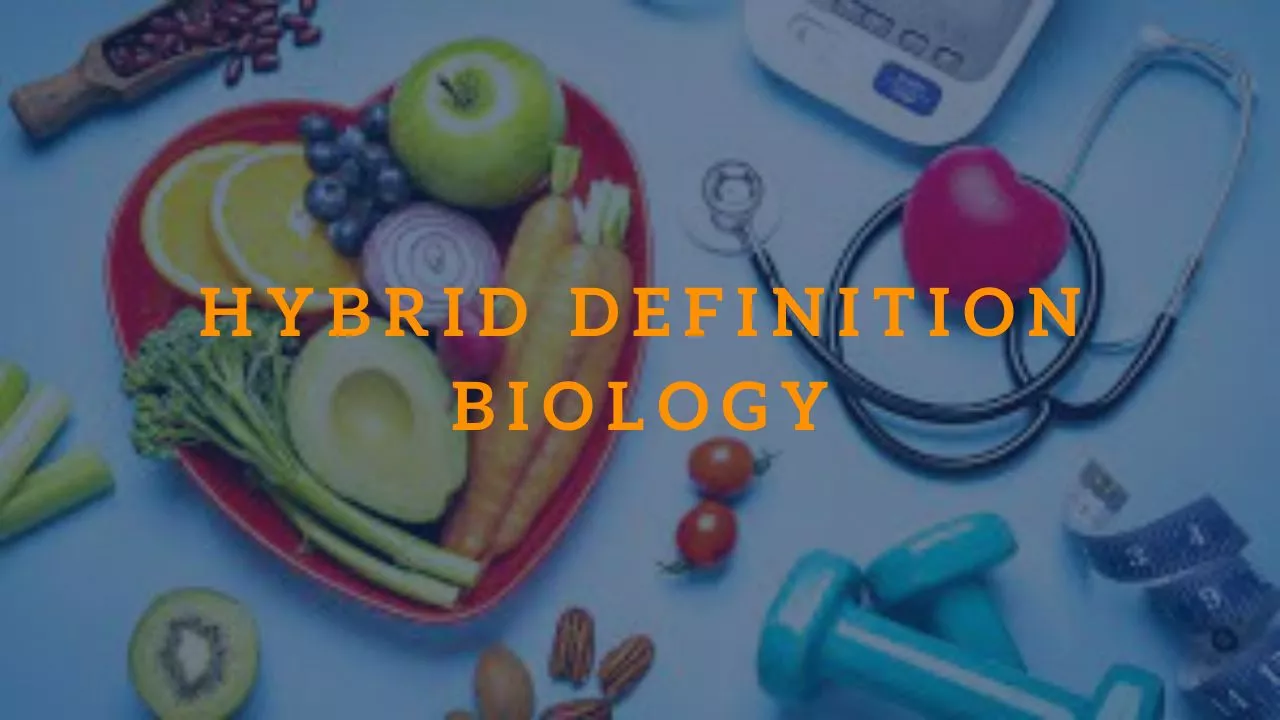Hybridization is the process of combining two different species or varieties to create a new hybrid. In biology, a hybrid is an organism that is a result of the mating between two different species or varieties. In this article, we will explore the definition of hybrid in biology and its significance.

What is a Hybrid?
In simple terms, a hybrid is an offspring of two different species or varieties. These offspring can inherit traits from both parents, which can result in a unique combination of characteristics. Hybridization can occur naturally or artificially through human intervention, such as selective breeding.
Types of Hybrids
There are two main types of hybrids: intra-specific and inter-specific. Intra-specific hybrids are created from the mating of two individuals from the same species, while inter-specific hybrids are created from the mating of two individuals from different species.
Examples of Hybridization in Biology
Hybridization is a common occurrence in nature. One of the most well-known examples of hybridization is the mule, which is a hybrid between a horse and a donkey. Another example is the liger, which is a hybrid between a lion and a tiger.
Significance of Hybridization in Biology
Hybridization can have significant implications for the evolution of species. It can lead to the creation of new species and can also result in the transfer of advantageous traits between species. Hybridization can also have negative consequences, such as the loss of genetic diversity and the creation of sterile offspring.
Hybridization in Agriculture
Hybridization is commonly used in agriculture to create new varieties of crops that have desirable traits, such as increased yield or disease resistance. This is achieved through selective breeding, where individuals with the desired traits are mated to create offspring with those traits.
Hybridization in Conservation
Hybridization can also have implications for conservation efforts. In some cases, hybridization can lead to the creation of new species, which can be beneficial for biodiversity. However, in other cases, hybridization can lead to the loss of genetic diversity and can threaten the survival of endangered species.
Hybridization and Genetics
Hybridization can also be used in genetics research to study gene expression and inheritance. By creating hybrids between different species or varieties, scientists can study how genes are expressed and inherited across generations.
Challenges of Hybridization
Hybridization can be a complex process, and there are many challenges associated with it. For example, hybrids may be sterile or may have reduced fitness compared to their parent species. Additionally, hybridization can lead to the loss of genetic diversity and can increase the risk of inbreeding depression.
Conclusion
Hybridization is an important concept in biology with significant implications for evolution, agriculture, conservation, and genetics research. By combining the genetic material of two different species or varieties, hybrids can exhibit unique characteristics and traits. However, hybridization can also pose challenges and risks, such as reduced fitness and loss of genetic diversity.
See you again at our other interesting article!
